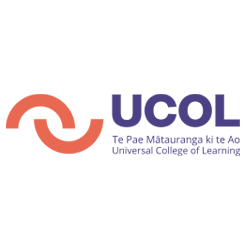
Professional Supervision: A Vehicle for Facilitating Change in Teaching Practice
Status
Completed: 1 August 2009
Project Details
A project completed in 2009, undertaken by Universal College of Learning, to investigate the use of group supervision to focus academic staff on unpacking and critiquing their world of teaching in an ITP (Institutes of Technology and Polytechnics).
Aims:
The main aims of the project were to:
- critically examine patterns of student engagement that may limit or hinder teaching effectiveness
- examine more flexible and student-centred teaching pedagogies
- evaluate professional supervision as a change catalyst.
Methodology:
The project methodology involved:
- group supervision principles being used to facilitate discussion between participants about teaching practice
- the group identifying issues, agreeing upon interventions, and monitoring the results of the teachers' actions in subsequent discussions
- carrying out an evaluation of the process to explore the participants’ perceptions of the value of the co-inquiry process.
Team

Michael O'Connell
Project Leader
Universal College of Learning (UCOL)
Janet Walke
Universal College of Learning (UCOL)Status
Funding
$9,713.00 (excl GST)
Key Findings
The key findings from the project included:
- The use of group supervision as a vehicle for co-inquiry into teaching practice yielded positive and constructive outcomes. Creating an environment that enables tertiary educators to raise, discuss, debate and explore the dynamics of teaching and the impact of organisational culture on teaching has yielded evaluative comments from most participants that support this process.
- Central to the original design for this project was an intent to purposely facilitate the use of an action research approach as a change process for participants. The researchers believe the findings do show evidence that supports forward movement by participants in practices, ideas and assumptions about aspects of teaching and learning. Some evidence did surface through the use of an action research reporting template. The participants found that reporting tangible examples of change in teaching practice over such a short period of time was difficult to evaluate in quantifiable terms.
- The process used in this project has helped to dispel concerns about the safety of open discussion/disclosure about teaching practice with peers. Facilitating a process for tertiary educators to discuss, debate and unpack assumptions about teaching and learning has created a space where the reframing and redirection of teaching roles has been enabled. All three groups had members who expressed interest in continuing a co-inquiry process in other academic cells (small working groups) which suggests a serendipitous benefit not anticipated at the beginning of this project.
- The safe environment and facilitated group process fostered constructive co-inquiry into teaching and learning challenges, hindrances and opportunities. The analysis and evaluation of this process yielded findings that clustered around student issues/responsibilities, institutional issues and teaching practice issues.
- This research provides some insights into the challenges the researchers faced in setting up and facilitating this project, the positive outcomes as reported by the participants, and ideas about the potential to replicate this research in any tertiary setting.
- In this project, the co-inquiry groups have allowed tertiary educators to openly talk about their teaching in a way that has far exceeded expectations. It has demystified much of the egocentric, isolated classroom behaviour of teachers.
Key Recommendations
The key recommendations from the project included:
Engaging students in learning | Tertiary educators need to have an appreciation and, where appropriate, an understanding of a wider range of student behaviours (generational and otherwise) in order to fully engage students in learning.
Supporting student learning | Institutions should pay particular attention to the potential challenges that students face within the ‘context of learning’ and the ‘nature of curriculum content’. Additional levels of focused resourcing would enable educators to better support student learning.
Professional support for tertiary educators | Professional support for tertiary educators is needed for enhanced relational skills with students. These might include decision processes about when, where, how much and by whom pastoral care is provided.
Learner behaviour | Critical conversations about learner behaviour and cognitivity between tertiary educators need to be overtly valued by tertiary institutions. Professional supervision groups are a vehicle for this to occur.
A report prepared by Michael O'Connell and Janet Walke.
(PDF, 865 KB, 18-pages).
- 1 August 2009